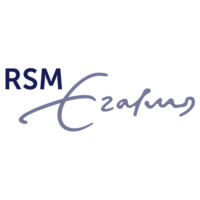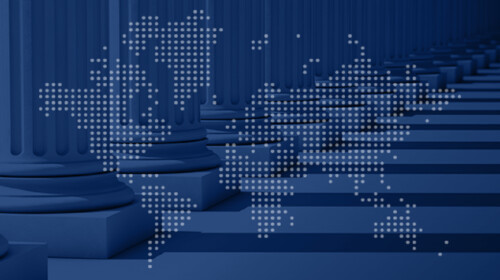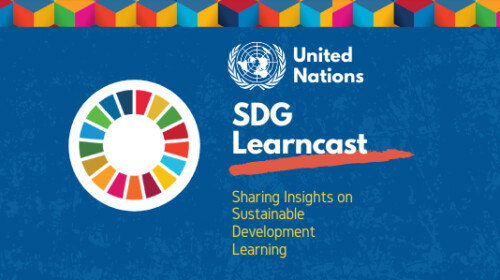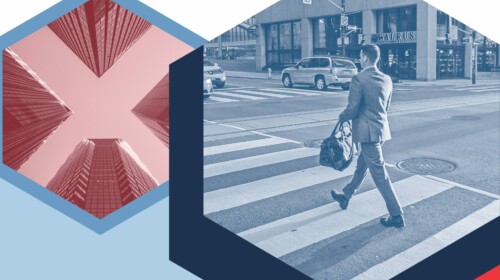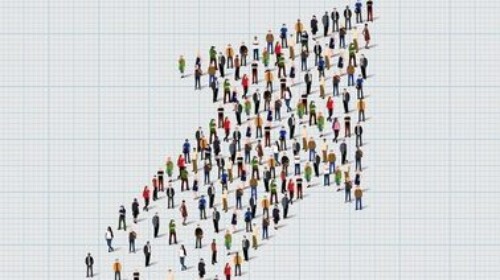This course has been developed by Rotterdam School of Management at Erasmus University. It focuses on the role of businesses in achieving the SDGs. You will gain insights from leaders of international companies and academics in business and management who will guide you through the issue of how businesses can contribute to the SDGs. You will become aware of the interconnectedness of the SDGs, the wickedness of the challenges, and encouraged to use a positive approach and take action, as change and transformation all starts with individuals taking responsibility.
In the first week, we will introduce you to the SDGs, to the role of business in achieving them, and to 'the power of one'. After that, the SDGs will be described in groups as you go through this course. We start with SDGs related to the biosphere, then we move on to those to do with society and the economy, and we end with the SDGs related to peace and partnerships.
The closing week will focus on systems thinking, interventions and trade-offs.
Download Syllabus
Target Audience
Business & civil society professionals, policy makers, general public.
Learning Objectives
Overall learning objectives
- Know what the SDGs are, why they are important and how each individual can be an agent for positive change in the world
- Develop a positive, critical, aware and courageous attitude towards the SDGs
- Be able to identify interconnectedness of the SDGs and the challenges behind solving them
- Understand the role of business in the transition to sustainable development to create a prosperous future for all
Week 1: Introduction to the Sustainable Development Goals
In this first week, you'll become familiar with the structure of this MOOC. You will be introduced to the United Nation’s Sustainable Development Goals (SDGs), and you will explore the role of business in achieving them. You will hear about the ‘power of one’ and how each individual can be a force for positive change.
There are 17 SDGs, and they will be described in groups as you go through this course. We start with SDGs related to the biosphere, then we move on to those to do with society and the economy, and we end with the SDGs related to peace and partnerships. The closing week will focus on systems thinking, interventions and trade-offs. But what are the SDGs, and why are they relevant for business? This week you will get acquainted with the SDGs and the structure of this course.
This week’s learning objectives:
- Understand why business should be interested in addressing the SDGs
- Understand why and how each individual can contribute to positive change
- Identify the impact of your lifestyle by calculating your own carbon footprint
- Define your own motivation for joining this MOOC and translate this into your own personal learning goals
Week 2: The Biosphere
It’s almost impossible to watch the news without being confronted by topics such as climate change, pollution, deforestation and biodiversity loss. But did you know that companies are key contributors to solving these challenges? Is it possible for companies to counter climate change and create a sustainable business culture without giving up profits? Let’s dive into the SDGs related to the biosphere of our planet and see how companies can help to halt, reverse or mitigate climate change and protect life on land and below water. We look first at SDG 13, which stresses the importance of taking action for the whole biosphere, then we examine the water (SDG 14) and land (SDG 15) components, and finally we focus on the specific resource of water for drinking and sanitation (SDG 6).
This week’s learning objectives:
- Understand how companies and organizations can contribute towards and mitigate their impact on SDG 6, 13, 14, and 15
- Understand the basics of climate change, businesses and sustainability
- Experiment with reducing your plastic footprint
Week 3: Society I
Of the seven billion people on the planet, at least half live in extreme poverty with no access to essential health services. Solving these challenges would not only alleviate suffering but would also allow people to become productive members of society, ready to work and make the world a better place. This week, we will look at SDGs from the perspective of society and see what companies can do to ensure that these societal challenges are addressed. We introduce societal challenges such as hunger and poverty, and we look at new business models for healthcare and the transition to sustainable energy.
This week’s learning objectives:
- Understand how companies and organizations can contribute towards and mitigate their impact on SDG 1, 2, 3, and 7
- Analyze your own impact on people and planet through the fashion industry
- Evaluate the interconnectedness of the SDGs by arguing if SDG 2 Zero Hunger can be solved without tackling SDG 1 No Poverty
Week 4: Society II
We humans like to call ourselves a civilized species. We live in complex cities and spend years educating ourselves to be productive members of our societies. But does everyone have equal opportunities in this complex system? This week, we will continue with the SDGs related to society, addressing sustainable cities, education and inequality. We examine sustainable city transportation networks and how social entrepreneurship can support education that promotes employment for everyone. We also talk about the interconnectedness of the SDGs. Let’s start exploring the business case for SDGs 4, 5, 10 and 11.
This week’s learning objectives:
- Understand how companies and organizations can contribute towards and mitigate their impact on SDG 4, 5, 10, and 11
- Evaluate the effectiveness of different business models for sustainable transportation
- Discover your own subconscious associations for people who are different from you
Week 5: Economy
The economy can be considered the backbone of our society. But how can we innovate to organize the economy in a more sustainable way? And how can we ensure that production and consumption will not result in depletion of the planet’s resources and destruction of ecosystems? This week we will explore business’ contribution to solving these challenges and look at what you, as an individual, can do. We will explore business contribution to SDGs 8, 9 and 12 and find out why decent work conditions, innovation and infrastructure, and sustainable consumption and production are so important. The key question is how businesses can be profitable in the long run while respecting planetary boundaries and human rights.
This week’s learning objectives:
- Understand how companies and organizations can contribute towards and mitigate their impact on SDG 8, 9, and 12
- Apply the 6Rs (Rethink, Refuse, Reuse, Repair, Reduce and Recycle) to your own life
- Evaluate your own impact on people and planet through the food industry
Week 6: Partnerships
No single individual, organization or country is able to achieve the SDGs on its own. The SDGs concern all of us, everywhere. If we join forces and collaborate we can work towards a prosperous future for people and the planet. For this, we need strong collaboration between governments, organizations and people, and safe, transparent and fair societies. In this module we will explore how companies, governments, non-profit organizations and individuals can develop partnerships to achieve peace and prosperity for all.
This week’s learning objectives:
- Understand how companies and organizations can contribute towards and mitigate their impact on SDG 16 and 17
- Understand why partnerships are crucial in reaching all the SDGs
- Use your knowledge of the SDGs and their link to businesses, to develop your own call for collaboration
Week 7: Systems thinking
Companies and individuals need to understand the interconnectedness of the SDGs in order to effectively contribute to them. This week we will take a systems-thinking perspective and explore synergies and trade-offs related to the SDGs. We will also think about what this means for business.
This week’s learning objectives:
- Understand why a systems perspective is key to solving the SDGs
- Analyze synergies and trade-offs of the different SDGs
- Explore how you are part of a system, by creating your own system map, and try to intervene

